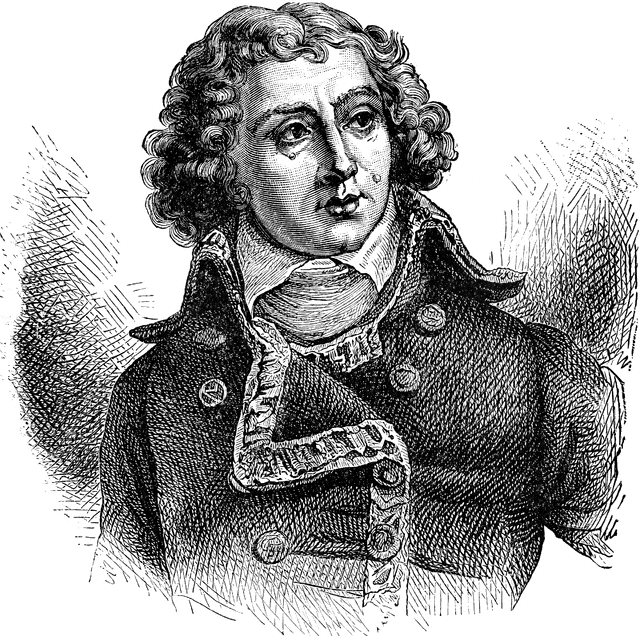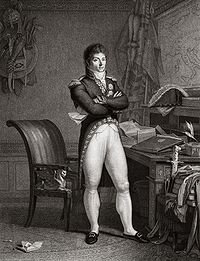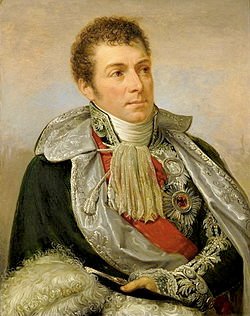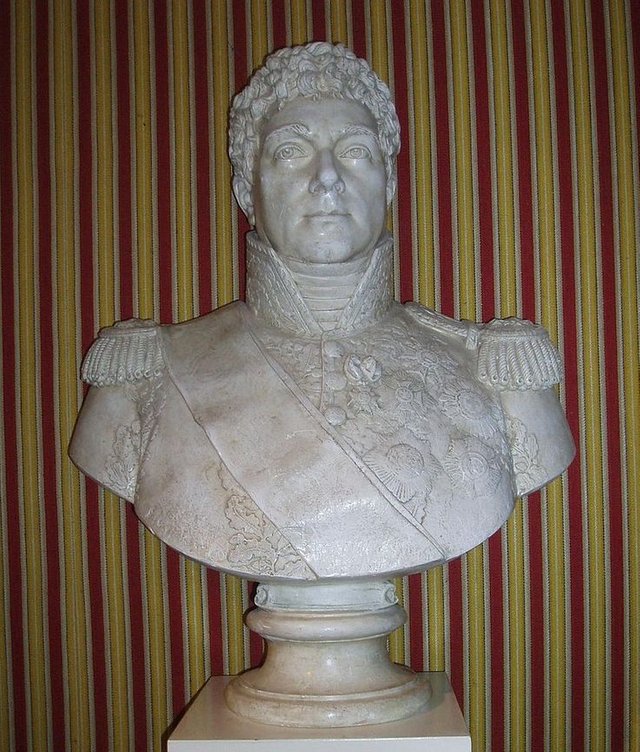Generals of Napoleon (4) - BERTHIER - "The Architect of the Grande Armée"
Louis-Alexandre BERTHIER (1753-1815) is not the most famous or glamorous general of Napoleon's staff but he has without a doubt been a key element to the success of the Grande Armée due to his polyvalence, hard work and intelligence.

Born in 1753, in Versailles, in a noble family, he entered the military engineering school of Mezieres, where he graduates as an engineer-geographer in 1766... AT THE AGE OF 13 !
From 1780 to 1783 he is fighting in the American War of Independance in Rochambeau's staff, and later on he becomes the major-general of the National Guard in Versailles in the crucial year of 1789. Faithful to the royal family, he protects them and goes as far as helping some members of the family to emigrate.
In 1792, when the monarchy is abolished, he loses his position but not his head. The Directoire, recognizing his value, reintegrates Berthier in the Army of Italy in 1795 where he finally meets Bonaparte. The young Corsican aknowledges instantly the talent of Berthier for planning and coordinating the troups and takes him into his staff.

This is the beginning of a long and successful friendship and alliance. Berthier follows Bonaparte in all the Italian campaigns, then in Egypt, and when the 18 Brumaire coup brings Bonaparte to power, Berthier is there again and named Minister of War, from where he meticulously reorders the French armies behind the scene. If Berthier is never far from the frontline (in 1809, at the battle of Wagram, his horse gets killed under him) it is however his diplomatic and organizational skills which make him an indispensable element of Napoleon's success.
His main diplomatic success was to negotiate the union of Napoleon with Marie-Louise, the daughter of the Austrian emperor, in 1810. Even if it didn't eventually pay off, it was a main coup on the diplomatic scene in order to sustain the legitimacy of Napoleon's empire.
Berthier himself had to marry into Bavarian nobility on the orders of his master, but it does not seem like he resented the fact, naming his first born son Napoleon-Alexandre.

At the height of the Empire, Berthier was probably the second most powerful man in the Empire, and as a consequence was showered with titles and honours : Marshal of the Empire in 1804, Prince of Neufchatel in 1806, Prince of Wagram in 1809, he even received the Castle of Chambord. In spite of all of this, he seems to have grown tired and weary of the incessant wars.
During the Russian campaign, he tries unsuccessfully to discourage Napoleon to keep going towards Moscow. The disaster that ensues only demonstrates his talent in logistic and organization, and as soon as Napoleon orders the retreat from Moscow and leaves the Great Army behind him, Berthier is in charge of the remaining skeleton of the Grande Armée. Following the German campaign and the invasion of France in 1814 (where he is injured, struck by a spear on the head), he rallies with Louis XVIII as soon as Napoleon signs his abdication. The memory of his good deeds in Versailles lived on with the Bourbon king, who lets him ride in front of his carriage during his entrance in Paris.
When Napoleon, the following year, escapes from Elba and retakes power, Berthier escorts Louis XVIII to Belgium and then finds shelter in his castle of Bamberg in Bavaria.
What follows next is still up for debate. In June 1815, he is found dead. He fell from a window. Did he commit suicide, torn between his sympathies for the king and the emperor ? Was he killed in order to prevent his joining his former master ? Whatever the truth, his absence at Waterloo will be dearly missed.
